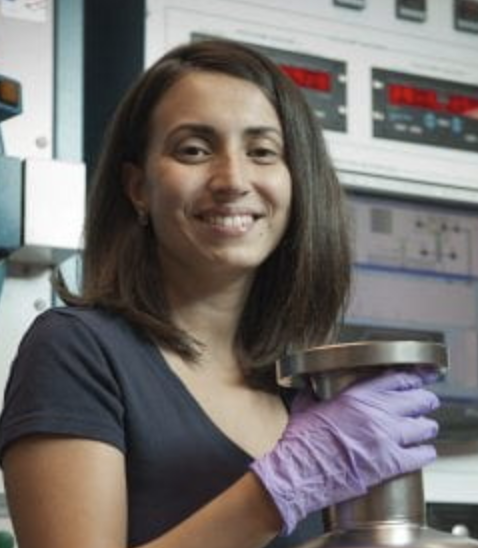Northwestern-Fermilab Physicist Grassellino Named Deputy CTO
 Effective December 1, Northwestern's associate professor of physics and Fermilab senior scientist Anna Grassellino began her new role as the laboratory’s deputy chief technology officer. She succeeds Fermilab senior principal engineer Rich Stanek, who served as deputy CTO for five years.
Effective December 1, Northwestern's associate professor of physics and Fermilab senior scientist Anna Grassellino began her new role as the laboratory’s deputy chief technology officer. She succeeds Fermilab senior principal engineer Rich Stanek, who served as deputy CTO for five years.
In the new position, Grassellino will help lead the lab’s exciting portfolio for advancing the key technologies in high-energy physics and help oversee the realization of important accelerator projects supported by the Department of Energy Office of High Energy Physics and Office of Basic Energy Sciences.
“I’m excited to be stepping up in this role of deputy CTO,” Grassellino said. “Fermilab’s high-energy physics technologies are unique and impactful, and the research and development in accelerator and detector technologies is vital to the future of our field.”
Grassellino is also the co-director of the Center for Applied Physics and Superconducting Technologies, known as CAPST, a joint collaboration between Northwestern and Fermilab that focuses on advancing superconducting materials and devices for multiple research areas.
“I am delighted that Anna will step into the position of deputy CTO at Fermilab,” said Northwestern Professor James Sauls, CAPST co-director. “She is an outstanding scientist and person to take on challenges and opportunities that range from superconducting technology for particle accelerators to quantum technologies for quantum sensing and quantum computing. We look forward to further strengthening the collaboration with Northwestern University in these exciting technology areas.”
Grassellino's research has focused on superconducting radio frequency (SRF) cavities, a technology most commonly applied to accelerate charged particles in large accelerators for a variety of scientific applications. This work has included discovering novel ways to dramatically increase the efficiency of SRF resonators, efforts that have resulted in numerous distinctions, including being awarded the Presidential Early Career Award for Scientists and Engineers (PECASE) in 2017.